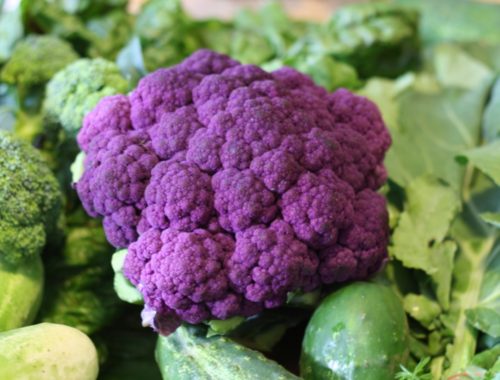We’ve mentioned a few times in previous posts to leave out the oil that many recipes call for. That’s because we follow a whole foods, plant-based lifestyle (WFPB, for short), which means we do not consume any overly processed foods. The food we eat is as close to its natural state as possible.
There are many reasons not to consume oil. If you want to find out more, here are just a few links explaining why we don’t eat oil: one of Michael Greger’s many videos on oils, John McDougall’s articles on extracted oils, one of Engine2’s discussions on oil, and lastly an article from UC Davis Integrative Medicine.

Tempeh simmering on the stovetop in a mixture of soy sauce, veggie broth, and sriracha sauce. No oil needed!
When we first decided to switch to a whole foods, plant-based lifestyle, we weren’t quite sure how we were going to cook without oil. We worried about taste, texture, and everything sticking to the pan. After giving it a try, we realized how easy it was and even found that leaving it out actually improved the flavor of our meals! Suddenly sautéd vegetables tasted like vegetables rather than vegetable-flavored oil.
Now that we have been cooking without oil for a while, we have established a few methods that work really well. The next time you find yourself reaching for your bottle of extra virgin olive oil, consider tossing it out and trying one of these tips instead!
Oil-Free Cooking Tips
- Bake instead of fry: We still love eating things like (plant-based) burgers and fries. Not to mention things like latkes, falafel, and crispy tofu. But we never fry these. Instead we bake them on parchment paper or silicone baking sheets. They are just as flavorful out of the oven as they are fried on the stovetop.
- Try a dry sauté, water, or veggie broth: If you are cooking veggies on the stovetop, they emit so much water content that some don’t need any added liquid. Onions and mushrooms, for example, release so much water that you can deglaze without adding anything. If you need to, though, water or veggie broth are good to use.
- There are lots of oil-free recipe resources! Forks Over Knives, The Engine 2 Diet, and T. Colin Campbell’s Center for Nutrition Studies are just a few of the sites we visit for completely oil-free recipes. The China Study Cookbook and PlantPure Nation Cookbook are only a couple of the many oil-free cookbooks available.
- You don’t need oil to make healthy, delicious salad dressings. We use things like mustard, tahini, or avocado as the base of our dressings and add vinegar and spices to finish it off. Do a Google search for oil-free dressings and you’ll see that the possibilities are endless!
- There are always substitutions. This is especially important when it comes to following recipes for baked goods. The oil is usually added as a binder or to keep the finished product moist. The same effect can be achieved by adding applesauce, ripened bananas, or a flax “egg” to the recipe. Follow this link for a definitive list of oil substitutions.
Until you’ve tasted food without oil, you just don’t know what you’re missing. There is so much flavor under the oil that you can’t appreciate until you leave it out. We tried it once and have been hooked ever since. Save the oil for your car!



